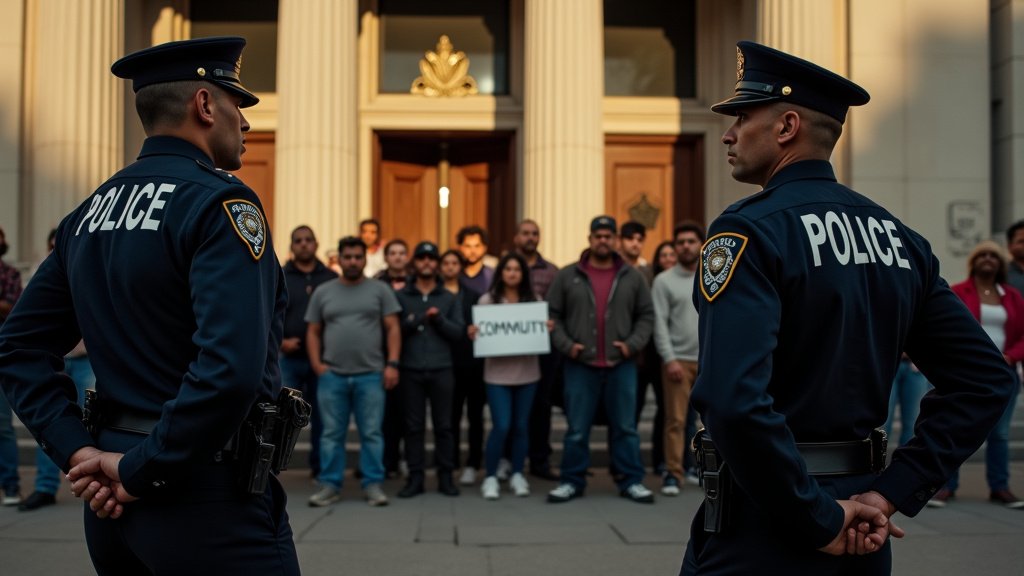Texas Senate Committee Debates Landmark Social Media Age Bill
AUSTIN, TX – The Texas Senate State Affairs Committee convened this week for contentious hearings surrounding Senate Bill 123, formally known as the “Texas Minor Social Media Safety Act.” Sponsored by State Senator Anya Sharma, the proposed legislation aims to significantly alter how minors interact with social media platforms by imposing stringent age verification requirements.
The bill’s core provisions mandate that social media companies implement robust age verification processes for all users under the age of 18. Furthermore, it requires platforms to obtain explicit parental consent before allowing individuals under the age of 16 to create or maintain an account. These requirements are intended by proponents to create a safer online environment for young Texans, mitigating potential harms associated with prolonged or unsupervised social media use.
The Proposed Legislation and Its Goals
Senate Bill 123 represents a significant legislative effort to regulate the digital landscape as it pertains to minors. Senator Sharma and other supporters argue that the bill is a necessary response to growing concerns about the impact of social media on the mental health and well-being of children and adolescents. They cite studies and anecdotal evidence suggesting links between excessive social media use, cyberbullying, exposure to inappropriate content, and rising rates of anxiety, depression, and other mental health challenges among young people.
The “Texas Minor Social Media Safety Act” is designed to put the onus on social media platforms to verify user age and ensure parental involvement for younger teenagers. The intent is to empower parents with greater control over their children’s online activities and restrict access for very young users entirely unless a parent approves. Proponents believe this legislative framework is essential because self-regulation by tech companies has been insufficient to adequately protect vulnerable minors.
Arguments from Proponents: Safeguarding Minors’ Mental Health
Advocates for SB 123, such as the organization Parents for Digital Wellness, presented compelling testimony to the committee, emphasizing the urgent need for intervention. They argue that social media environments are often unregulated spaces where minors are exposed to myriad risks, including exploitative content, predatory behavior, and content promoting self-harm or disordered eating. Parents for Digital Wellness and similar groups contend that the cumulative effect of these exposures, combined with the addictive design of many platforms, is having a detrimental effect on the psychological development and stability of minors.
Testimony from parents, educators, and mental health professionals supporting the bill highlighted personal stories and expert opinions on the crisis in youth mental health, attributing a significant portion of the problem to unchecked social media access. They see age verification and mandatory parental consent as fundamental steps toward creating guardrails that allow young people to develop in a healthier environment, free from the constant pressure and potential toxicity of certain online platforms.
Concerns and Opposition: First Amendment, Technicality, and Privacy
Conversely, strong opposition to Senate Bill 123 was voiced by a coalition of technology industry representatives and civil liberties advocates. Groups like Texas Tech Forward, representing various technology companies operating in the state, testified that while they share concerns about minor safety, SB 123 is the wrong approach. Their primary arguments center on technical feasibility, privacy concerns, and potential infringements on constitutional rights.
Texas Tech Forward argued that implementing reliable age verification for every user is a complex technical challenge, potentially requiring the collection of sensitive personal data (like government IDs or biometric information) from users, including adults, to verify age. They raised concerns about how this data would be stored, protected from breaches, and used, leading to significant privacy risks for all users, not just minors.
Civil liberties organizations, including the ACLU of Texas, presented forceful arguments based on the First Amendment. They contend that social media platforms are modern public forums for expression and that restricting access based on age, particularly for teenagers, infringes upon their right to free speech and access to information. The ACLU argued that teenagers are capable of accessing a vast amount of protected speech online and that parental consent requirements, especially for older minors, could arbitrarily limit their ability to engage in political discourse, access educational resources, or connect with peers, even on non-harmful platforms or for legitimate purposes.
Opponents also highlighted that the bill’s technical requirements could inadvertently limit access for many teenagers who may not have the necessary identification or parental permission, potentially excluding them from important social connections, educational tools, and access to support networks they find online. They suggested that less restrictive measures, such as enhanced parental controls provided by platforms or digital literacy education, would be more effective and less problematic than mandatory age verification and consent laws.
The Committee Hearing: A Clash of Perspectives
The hearings before the Texas Senate State Affairs Committee became a forum for these sharply contrasting viewpoints. Senators on the committee posed questions to witnesses from both sides, probing the practical implications of the bill, the technological hurdles, the constitutional arguments, and the evidence linking social media to mental health outcomes. The debate reflected broader societal tensions between protecting children in the digital age and preserving individual freedoms and privacy.
Testimony often became emotional, particularly from parents sharing personal stories of their children’s struggles, while industry representatives emphasized the economic impact and technical complexities. Civil liberties advocates provided legal context, underscoring the potential for legal challenges should the bill pass in its current form. The committee members face the difficult task of weighing these competing interests and determining whether the proposed solution is the most effective and least restrictive means to achieve the stated goal of enhancing minor safety online.
Looking Ahead
The hearings this week are a crucial step in the legislative process for Senate Bill 123. The Texas Senate State Affairs Committee will consider the testimony and likely deliberate further before deciding whether to advance the bill to the full Senate for a vote. The outcome of this debate could have significant implications not only for social media users and platforms in Texas but potentially serve as a model or cautionary tale for other states considering similar regulations. The balancing act between digital safety, privacy, and freedom of expression remains a central challenge in the ongoing effort to navigate the complexities of the online world.






